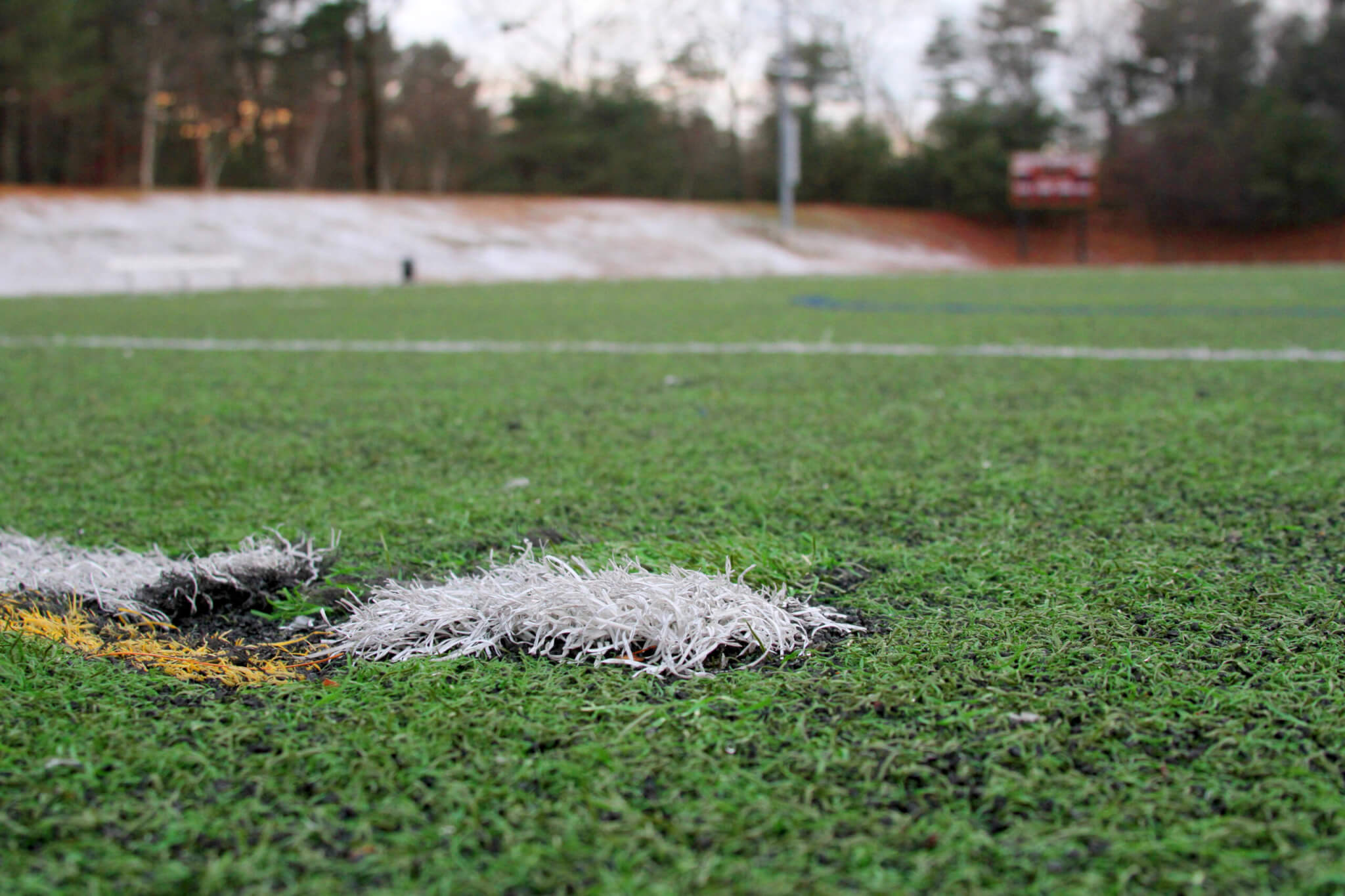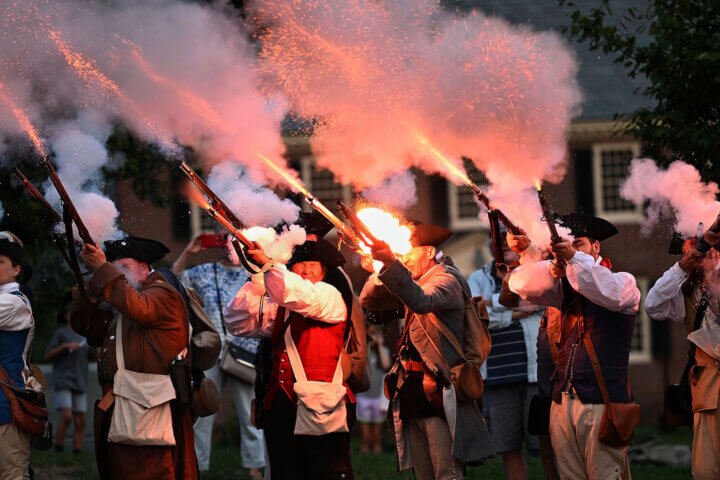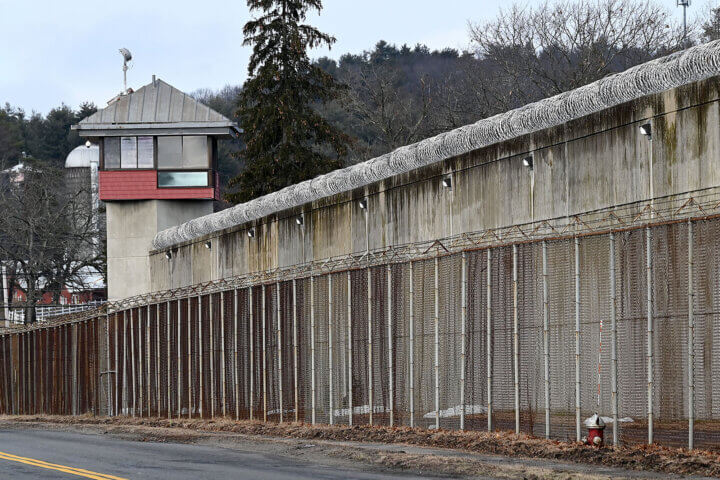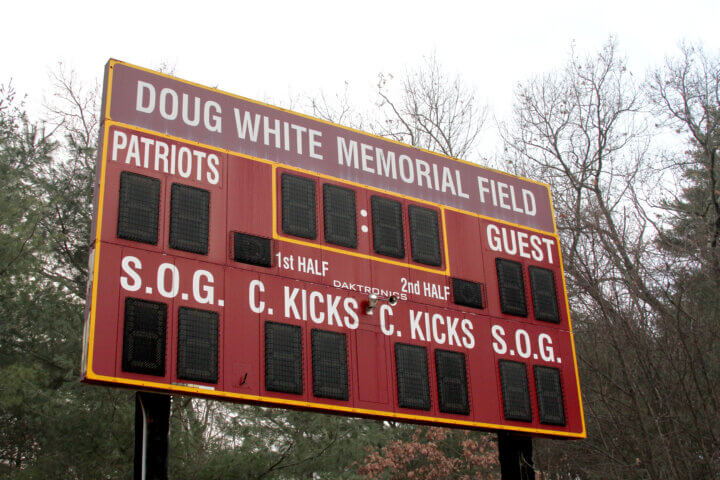By Dakota Antelman — Dakota@concordbridge.org
Stick with turf or go with a grass replacement?
Stakeholders are at odds about the future of the Doug White Fields at Concord-Carlisle High School. As the Select Board prepares to step into the process, the debate also has leaders probing a complicated set of agreements that govern the site.
“I want to make sure that we understand what the town’s role in this process is, because it feels pretty awkward to me,” town manager Kerry Lafleur told the board on November 4.
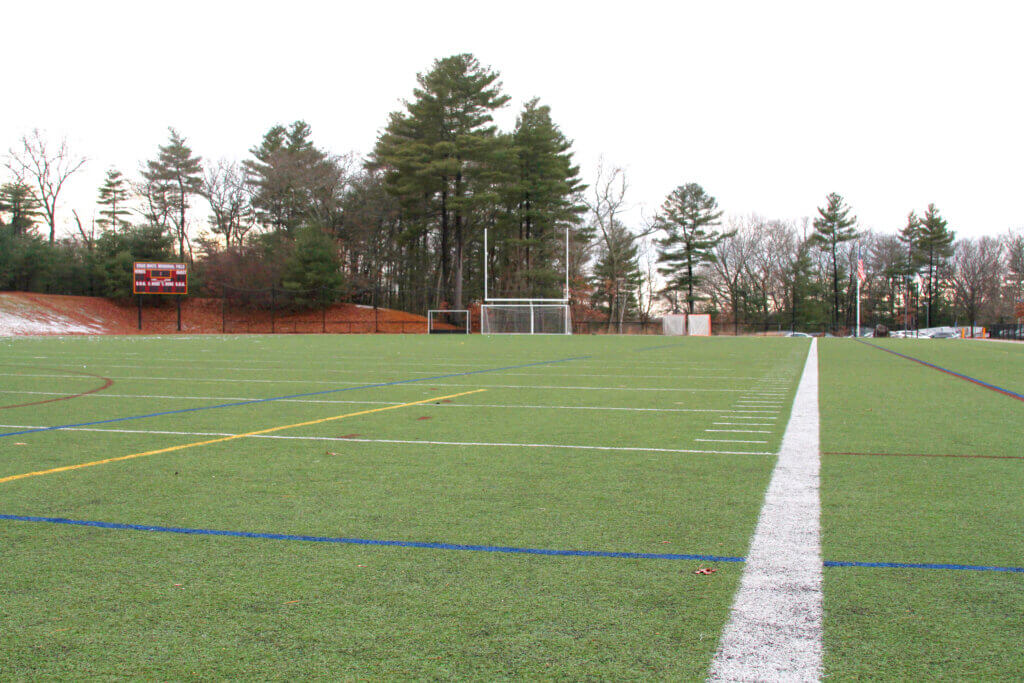
Town agreements
The Doug White Fields date back to June 2007, when the town reached a deal with the School Committee. The agreement let the town of Concord design, build, use, and maintain the tandem artificial turf surfaces. Though the fields are on school property, CCHS teams split time with other programs including several youth and adult sports teams. The town Recreation Department does not run any of its own programming at the Doug White Fields but handles scheduling, according to Lafleur.
Beyond the agreement with the School Committee, the Friends of Concord-Carlisle Playing Fields (FCCPF) promised to help pay for the fields’ construction, fund field maintenance, and set money aside for the fields’ eventual replacement. The town maintains the fields.
“It’s as confusing as it possibly could be,” Lafleur told The Concord Bridge.
The FCCPF is a collaboration between local youth soccer, youth lacrosse, youth football, and adult soccer programs. Jarnryd said each “sport user group” contributes user fees to replace the fields. Fees are now $40 per player per season.
Treasurer Erik Jarnryd said the organization expects to have $1.55 million to replace the fields by spring 2025. Jarnryd said that money is only for artificial turf, though, and he said it would be off the table if the town chooses natural grass.
Group president Seth van der Swaagh backed Jarnryd’s statement by citing a portion of the organization’s agreement with the town in which they promised to “annually set funds aside in a reserved account at a local bank to be used solely and exclusively for the eventual replacement of the turf surface.”
“We take that to mean replacing turf with turf” because “that’s what was agreed to,” van der Swaagh said.
Jarnryd said FCCPF leadership “never imagined that this would come back as, ‘Let’s take a fresh look at all of it to see if we even want the fields anymore.’”
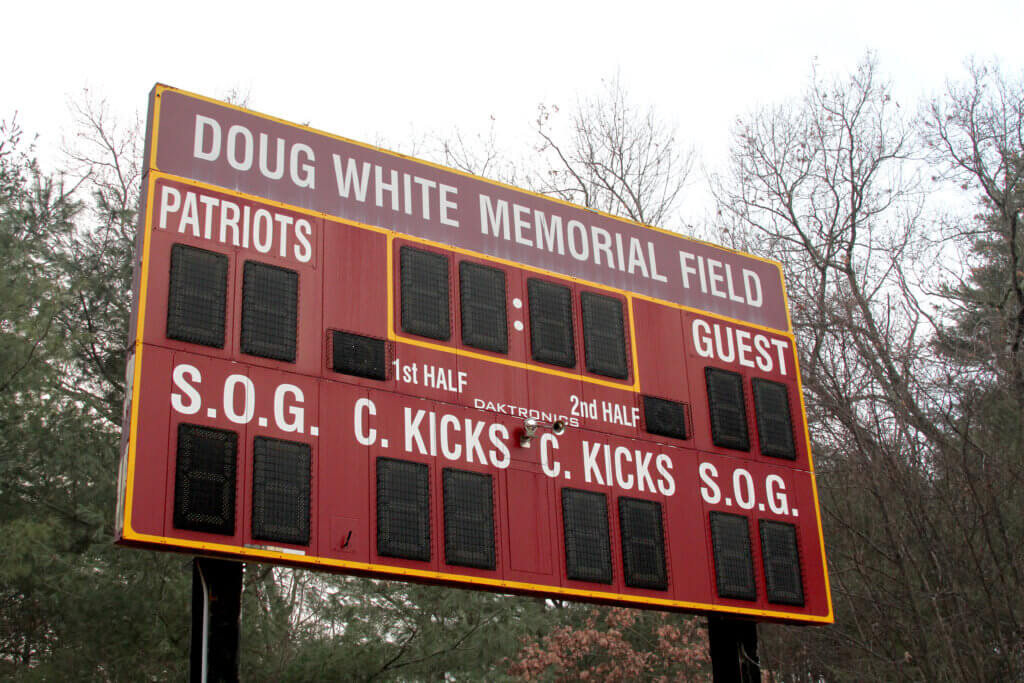
‘Ripped to shreds’
There’s broad agreement about the need for a turf replacement.
Van der Swaagh said crews have already completed “spot replacements” on certain damaged areas. “But the viability of those replacements has kind of had its time,” he said.
Climate Action Committee co-chair Janet Miller said the fields “are very worn down,” adding, “They’re getting close to being dangerous.”
People on both sides of the turf versus grass debate started making their cases to the Select Board with a flurry of messages in early November.
For van der Swaagh, who’s also president of Concord-Carlisle Youth Soccer, the argument for artificial turf is three-pronged.
He said turf is a more durable choice for a surface that thousands of athletes use each year. Turf fields are also better suited for high-level competition and stay playable in rainy weather that would otherwise force game cancellations, van der Swaagh told The Bridge.
If replaced with grass, Jarnryd said, “these fields would be ripped to shreds.”
Read more: What’s organic crumb, and why do some oppose it?
‘So many fields’
Miller cited sustainability concerns as she argued against turf and in favor of grass. She said turf could leach dangerous PFAS chemicals into the water supply. Miller said turf fields also contribute to microplastic pollution. Turf fields can also retain heat, Miller said, making grass preferable.
With the right technology and techniques, Miller said, the town could build a grass field that could stand up to some of the punishment the Doug White Fields take. Miller said the town and CCHS could also spread teams across other facilities in Concord to distribute the burden.
“There are so many fields that you could rotate around,” she told The Bridge.
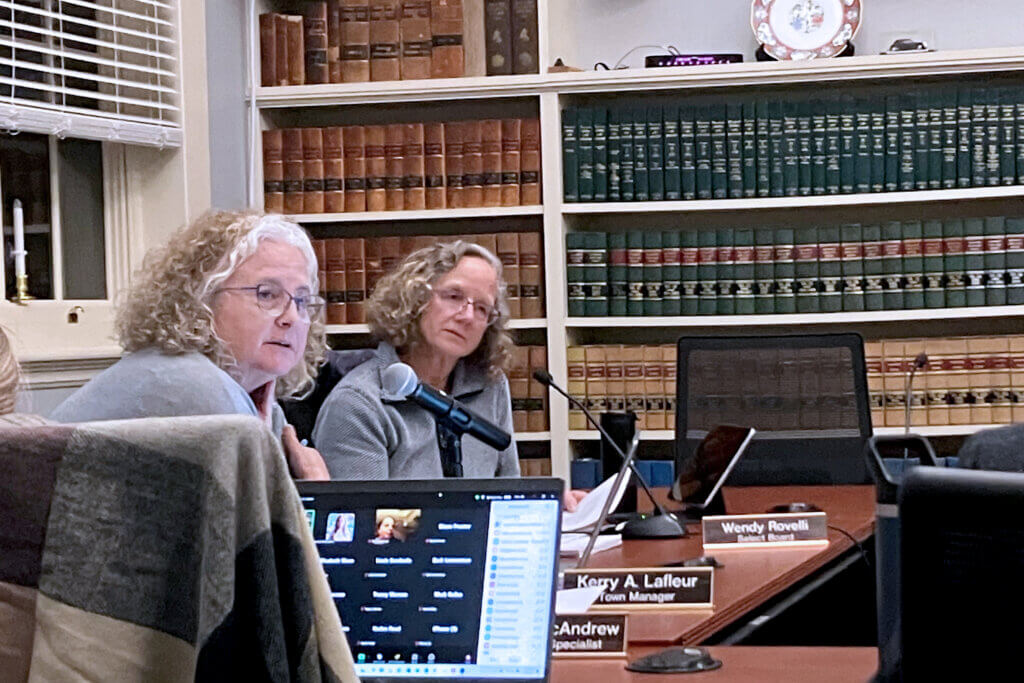
Select Board’s role
The town has already committed up to $100,000 in American Rescue Plan Act funding to a feasibility study at the Doug White Fields. Lafleur said the study would “look at alternatives” for the site with the goal of making “sure that whatever we move forward with is the right project.”
Lafleur said it seems like “people are looking for the town, rather than the schools or private groups, to push this project forward.”
Speaking on November 4, Lafleur and several Select Board members agreed a public process is needed to decide the fields’ fate.
Select Board chair Mary Hartman later told The Concord Bridge she expects the board will discuss the lay of the land at its December 16 meeting.
This story has been updated to better reflect the timeline of the town agreements governing Doug White Fields.



